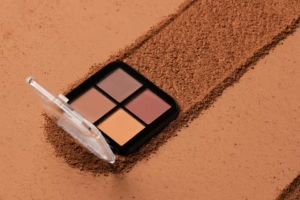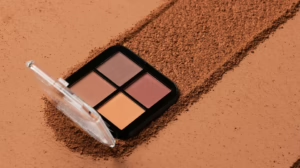Finding Your Perfect Match: Choosing the Right Dermatologist for You
Choosing the right dermatologist is a crucial step in managing your skin health, whether you’re dealing with acne, eczema, psoriasis, or simply aiming to maintain your skin’s youthful appearance. With a plethora of dermatology options available, it can be challenging to find the perfect match. This article will guide you through the vital considerations, qualifications, and tips that will help you make an informed choice when selecting a dermatologist.
Understanding Dermatology
Dermatology is a specialized branch of medicine that deals with the diagnosis, treatment, and prevention of skin, hair, and nail disorders. Dermatologists are trained to treat a wide array of conditions, including but not limited to:
- Acne
- Eczema
- Psoriasis
- Skin infections
- Skin cancer
- Hair loss
- Nail problems
Additionally, dermatologists perform cosmetic procedures such as chemical peels, Botox, fillers, and laser therapy, making them versatile health professionals.
When to See a Dermatologist
Understanding when you need to see a dermatologist is the first step towards finding the right one. You might consider a visit if you experience:
- Persistent skin problems that do not respond to over-the-counter medications
- Worsening acne or other skin conditions
- Concerns about skin cancer, such as new moles or changes in existing moles
- Skin conditions requiring specialized treatment
- Interest in cosmetic procedures to improve the appearance of your skin
Factors to Consider When Choosing a Dermatologist
1. Qualifications and Credentials
The first thing to check when choosing a dermatologist is their qualifications. Look for a doctor who is board-certified in dermatology, indicating that they have completed specialized training and passed rigorous exams. This certification is an essential credential, showing that the dermatologist has the necessary skills and knowledge to provide care for skin-related issues.
Moreover, consider their educational background. A strong background from a reputable medical school followed by a residency in dermatology is essential. Additionally, some dermatologists choose to pursue fellowships in specialized areas of dermatology, such as pediatric dermatology or dermatopathology.
2. Specialization
Dermatology is a broad field, and many dermatologists specialize in specific areas. If you have a particular skin condition or cosmetic concern, look for a dermatologist whose expertise aligns with your needs. For instance:
- Pediatric Dermatologists focus on skin issues in infants and children.
- Mohs Surgeons specialize in treating skin cancer through Mohs micrographic surgery.
- Cosmetic Dermatologists focus on aesthetic procedures like fillers and laser treatments.
3. Experience
Experience is another crucial factor when considering a dermatologist. A practitioner with years of experience in treating your specific condition may offer valuable insights and more effective treatment options. Don’t hesitate to ask about their past cases involving patients with similar issues to gauge their experience level.
4. Insurance and Costs
Before making an appointment, check whether the dermatologist accepts your health insurance plan. Insurance coverage can significantly reduce out-of-pocket costs, making it an essential aspect to consider. If you’re uninsured or have a high deductible, inquire about payment plans or other financial options offered by the practice.
5. Location and Accessibility
Convenience plays a significant role in your choice of dermatologist. Consider the location of the practice and its accessibility from your home or office. Long travel times might discourage you from making regular visits, particularly if you require ongoing treatment.
Additionally, availability for appointments matters. Do they offer after-hours or weekend appointments? Understanding their scheduling flexibility will help you in case of urgent needs.
6. Reviews and Recommendations
Researching online reviews can provide insights into patient experiences with specific dermatologists. While no doctor will have 100% positive feedback, look for patterns in the reviews. Key attributes to consider include:
- Communication style
- Bedside manner
- Wait times
- Office staff professionalism
Additionally, asking friends, family, or your primary care physician for recommendations can lead you to trustworthy dermatologists.
7. Consultation
Once you’ve narrowed down your options, schedule an initial consultation. This appointment is vital for assessing whether the dermatologist is the right fit for you. During the consultation, consider the following:
- Did the dermatologist listen to your concerns?
- Were they able to explain your condition and treatment options clearly?
- Did you feel comfortable asking questions?
- Was the office environment welcoming and professional?
Choosing a dermatologist should be a collaborative process where you feel heard and understood.
8. Technology and Techniques
Advancements in dermatology technology can significantly impact the treatment outcome. Inquire about the techniques and equipment the dermatologist uses. For instance, if you’re interested in cosmetic procedures, ask about the lasers and devices available in the practice.
In addition, staying updated on the latest treatments and technologies is crucial. A determined dermatologist will continue to hone their skills through continuing education, workshops, and conferences.
9. Communication Style
The line of communication between you and your dermatologist is paramount. A good dermatologist should be approachable, encouraging open dialogue about your concerns and treatment preferences. Clear communication regarding treatment plans, potential side effects, and expected outcomes can significantly enhance your experience.
10. Follow-Up Care
Consider the dermatologist’s approach to follow-up care. Skin conditions can change over time, necessitating adjustments to your treatment plan. A good dermatologist will be proactive about scheduling follow-up appointments and is accessible should you have concerns post-treatment.
Beyond Initial Consultations: Building a Long-term Relationship
Once you have selected a dermatologist, it’s vital to maintain a strong professional relationship for ongoing skin health. Here are some tips for nurturing this relationship:
Regular Visits
Regular skin check-ups are crucial for prevention and early detection of skin cancers and other conditions. Depending on your risk factors, your dermatologist might recommend annual visits or more frequent checks.
Open Dialogue
Continuously communicate with your dermatologist about any changes in your skin, personal health, or medication. If a treatment isn’t working or you’re experiencing side effects, don’t hesitate to discuss these issues. A good practitioner will be willing to adapt your treatment plan accordingly.
Educate Yourself
Stay informed about your skin conditions and potential treatments. Knowledge empowers you to take an active role in your skin health. Ask the dermatologist for educational resources and trustworthy websites to gather information.
Trust Your Instincts
If at any point you feel uncomfortable or believe your concerns aren’t being adequately addressed, it’s okay to seek another opinion. Your skin health is of utmost importance, and you deserve to have your concerns taken seriously.
Conclusion: The Takeaway
Choosing the right dermatologist is a vital step in maintaining your skin’s health and beauty. By carefully considering qualifications, experience, specialization, accessibility, and communication style, you can find a dermatologist that meets your individual needs. Building a long-term relationship with a trusted dermatologist ensures that you receive the best possible care.
Investing the time to find the right professional not only leads to better treatment outcomes but also leaves you feeling empowered and confident about your skin health. Don’t underestimate the impact of a good dermatological relationship in enhancing your overall quality of life.
Finding your perfect match in skincare begins with you—so take the necessary steps to ensure you start your dermatological journey on the right foot.
Modern Footnote Source
- American Academy of Dermatology. “Finding the Right Dermatologist.” AAD
- Dermatology Times. “What to Look for in a Dermatologist.” Dermatology Times
- Mayo Clinic. “Dermatologist: When to See One.” Mayo Clinic
- WebMD. “How to Choose a Dermatologist.” WebMD
This article has been meticulously crafted to guide you toward selecting the best dermatologist for your unique skin needs. Please remember that the information provided here is for educational purposes and should not replace professional medical advice. Always consult a healthcare provider for specific skin concerns.


























Add Comment